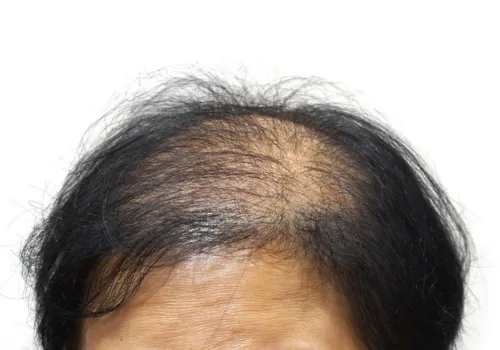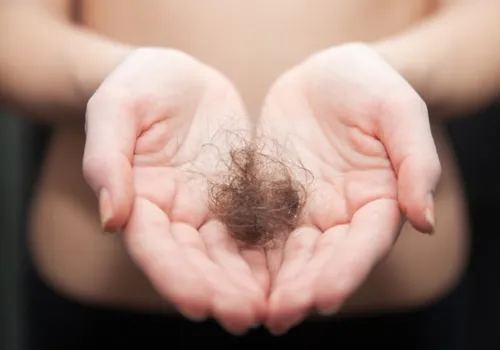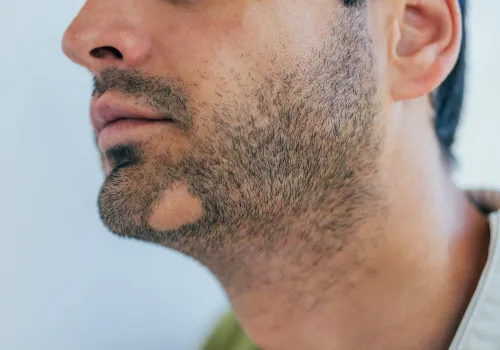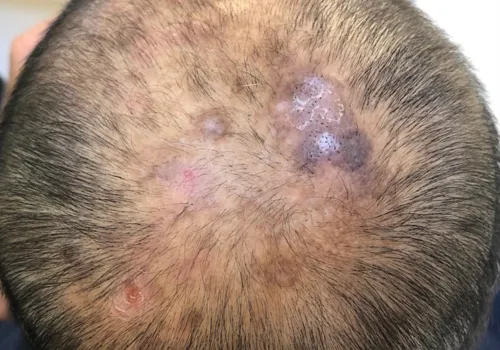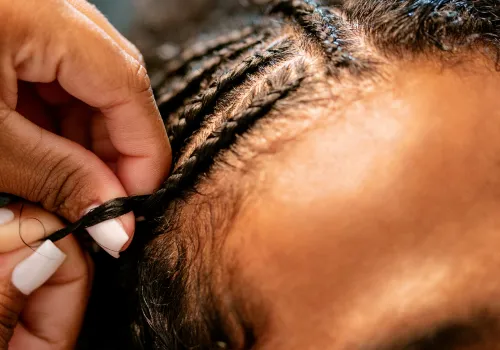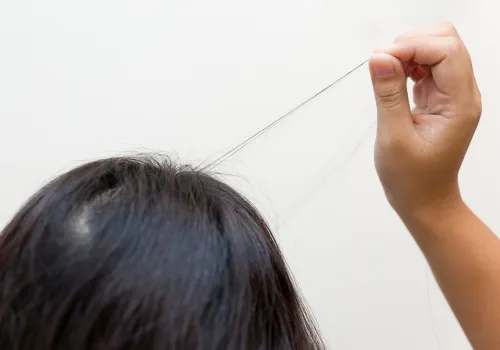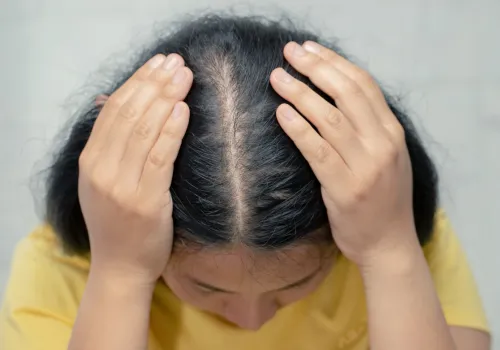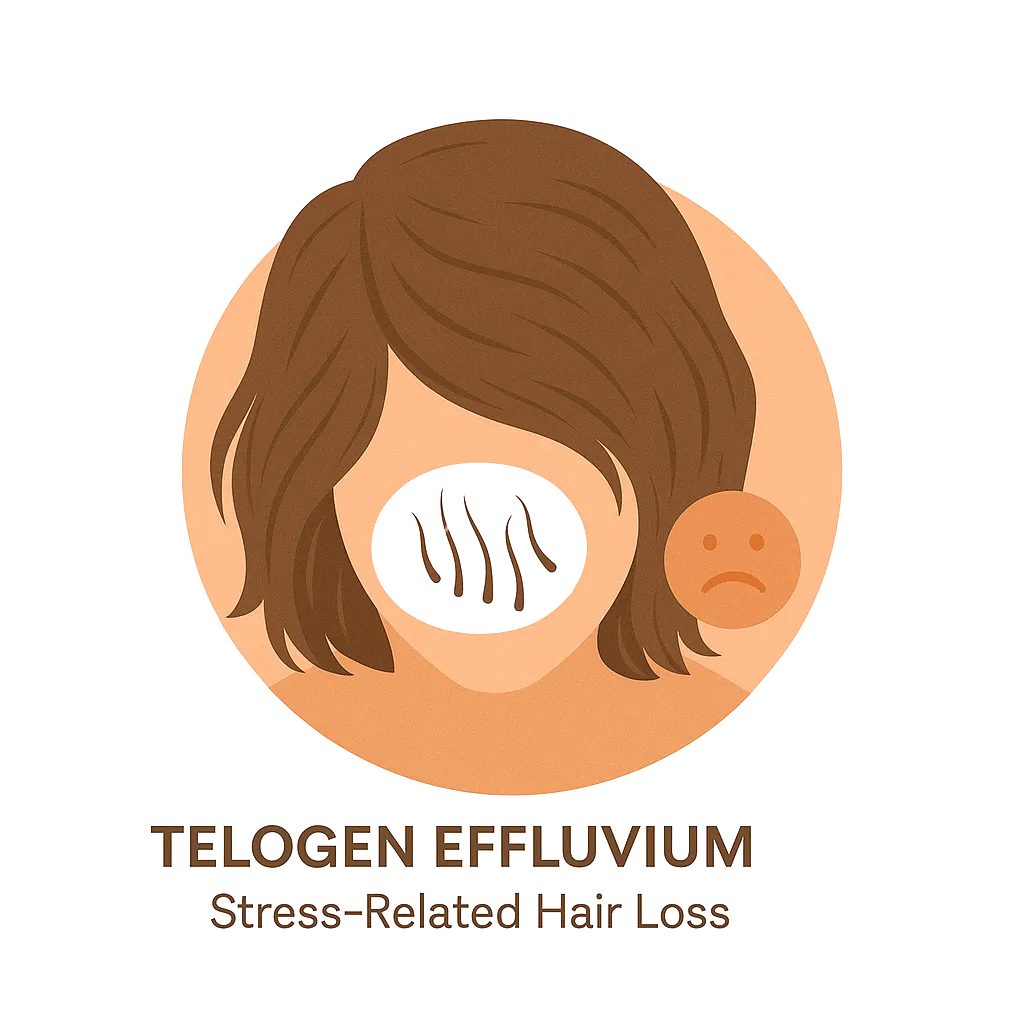
Telogen Effluvium (TE)
(Stress-Related Hair Loss)
A temporary hair loss triggered by physical or emotional stress, illness, or major life changes. This condition causes more hairs than usual to enter the shedding (telogen) phase at once.
Scroll to Learn More
A temporary form of hair shedding triggered by internal stress, illness, or sudden changes in the body.
What is Telogen Effluvium?
Telogen Effluvium (TE) is a form of diffuse hair shedding that occurs when a larger-than-normal number of hair follicles shift prematurely from the growth phase (anagen) to the resting phase (telogen). This condition is usually triggered by physical or emotional stress, illness, surgery, childbirth, or dietary imbalances.
It’s one of the most common types of non-scarring alopecia and, fortunately, it’s typically reversible once the root cause is identified and addressed. Hair shedding often begins 6–12 weeks after the triggering event and can last for several months.
Common Causes & Contributing Factors
Why It Happens
Emotional or physical stress – Anxiety, grief, trauma, or overtraining
Postpartum or hormonal shifts – Common 2–4 months after giving birth
Illness or infection – Viral infections (e.g., COVID-19), high fevers
Medication reactions – Especially antidepressants, beta blockers, retinoids
Crash diets or calorie restriction – Sudden nutrient deficits
Iron deficiency or anemia – A frequent cause of chronic TE
Thyroid imbalance – Both hypothyroid and hyperthyroid states
Don't worry, we can help!
Professional Support & Diagnosis
A certified trichologist or medical professional typically begins with a detailed consultation and health timeline.
Diagnosis includes:
Scalp examination under magnification
Functional blood chemistry analysis to assess hormones, nutrients, and inflammation
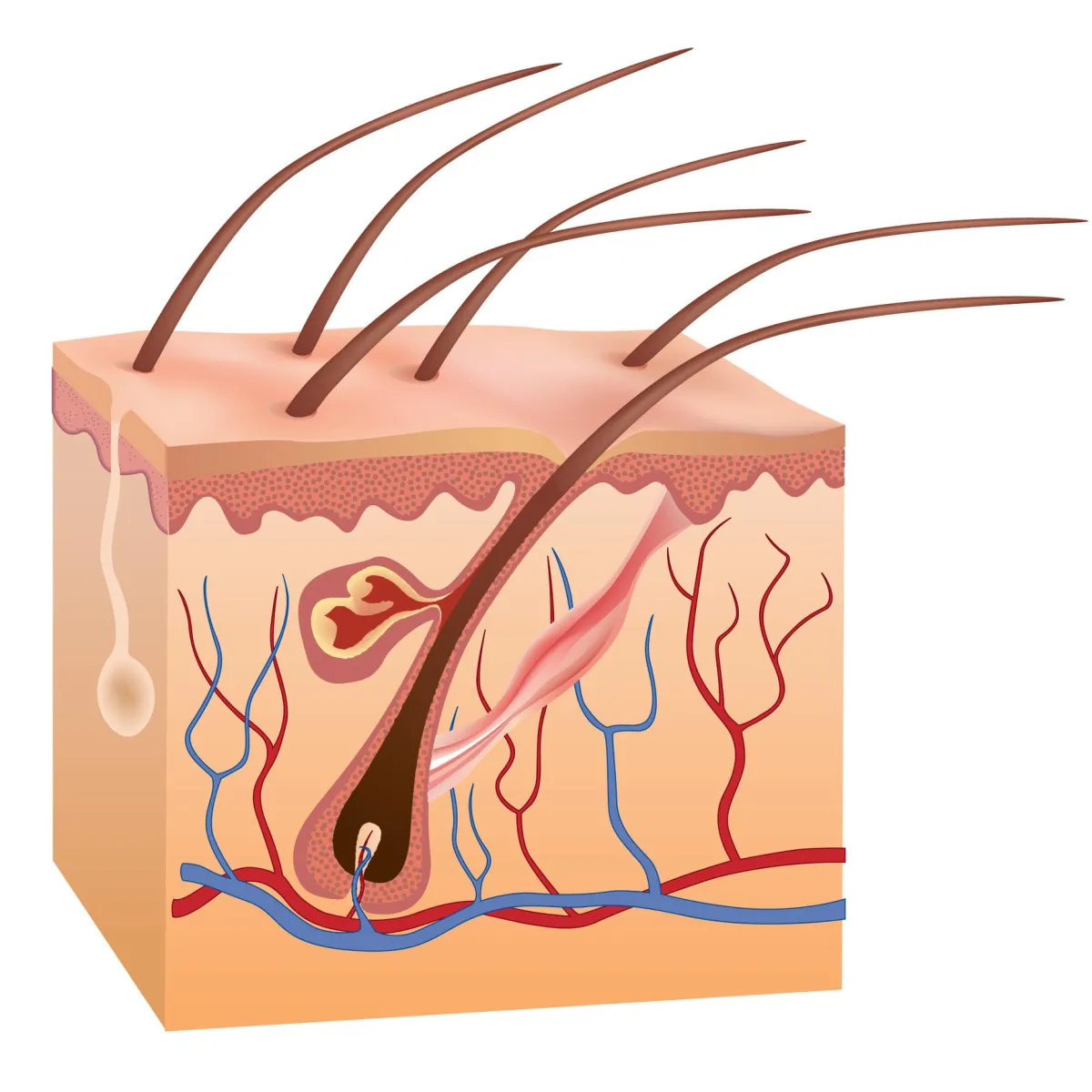
What You Might Notice
Increased hair in the shower, brush, or pillow
Diffuse thinning across the scalp rather than patches
Noticeable volume loss but intact hairline
Hair appears thinner but follicles are not scarred
No significant itching or inflammation (unlike other conditions)
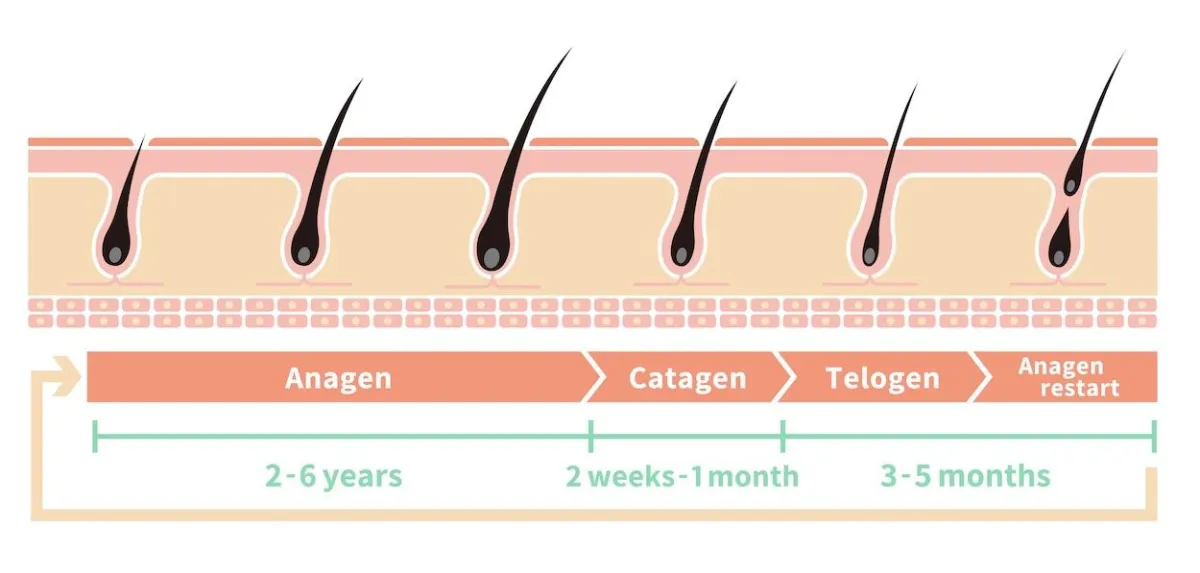
How It’s Diagnosed
Professional Support & Diagnosis
A trichologist or integrative practitioner will evaluate:
Health history and timeline (e.g., major stress, illness, pregnancy)
Scalp exam (no scarring or inflammation)
Functional blood chemistry to assess ferritin, vitamin D, thyroid, inflammation, liver markers, etc.
Pull test (gently tugging on hair to assess active shedding)
Bioscan or gut health evaluation if chronic
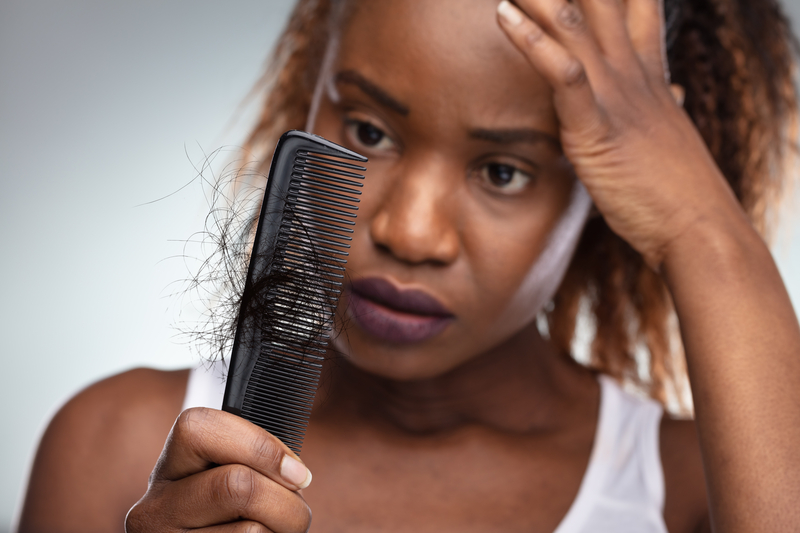
What Can Be Done
Treatment & Management Options
Lifestyle Recommendations
Prioritize stress recovery: rest, sleep, adaptogens, journaling
Balanced whole food diet with adequate protein and calories
Consider a gentle exercise routine like walking or yoga
Topical / Clinical Treatments
Scalp-soothing therapies with aloe vera, green tea, or chamomile
Microneedling with growth peptides (when inflammation is low)
Red light therapy to support circulation and regrowth
Scalp Therapies & Supplements
Scalp Therapies & SupplementsFunctional supplements: iron (if low ferritin), zinc, biotin, magnesium
Digestive enzymes and probiotics if gut health is impaired
Cell Food Drops and Iridium Shampoo to nourish the follicle environment
Real Stories. Real Experiences.
You’re Not Alone — Androgenic Hair Loss Is More Common Than You Think
If you're navigating Androgenic Alopecia, we want you to know: you're not alone, and your experience is valid. This isn’t just about hair — it’s about identity, confidence, and the emotions that come with change.
That’s why we built this community — to offer more than just information. To create a space where
real people with real stories
can connect, share, and remind one another that support is always within reach.
Whether you’re just beginning to explore your options or have been managing this for years, we’re here with resources, education, and encouragement — because no one should feel like they’re facing this alone.
"After COVID and a lot of emotional stress, I started losing handfuls of hair. It was terrifying. With proper testing and support, I finally understood what was happening and began to heal."
– Anonymous, Age 42


Not ready to book a session just yet?
That’s okay—your curiosity still matters! If you have a question about hair or scalp health but aren’t ready to move forward with a consultation, feel free to send it our way. We may feature it in an upcoming blog post or use it as a topic in a future live session—because chances are, someone else is wondering the same thing too.
Telogen Effluvium (TE)
We regularly share content on this topic through both video and written posts. Use the search bar to find answers to the specific questions you're looking for.
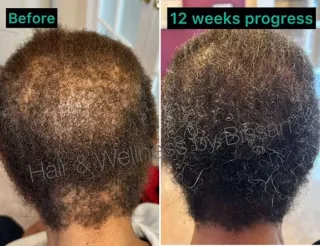
Case: Multiple Types of Alopecia
Hair loss can be overwhelming, especially when dealing with multiple types of alopecia. This case study shares how a woman in her 60s, after failed treatments, found hope through a whole-body approach... ...more
Androgenetic Alopecia ,Telogen Effluvium Alopecia Areata Scarring Alopecia Traction Alopecia Trichotillomania Hormonal Hair Loss Nutritional Deficiency Trichology &Bissan
November 28, 2024•4 min read
Want to Learn more on Androgenetic Alopecia
Dive deeper into the causes, signs, and solutions for androgenetic alopecia with our expert-led video content on The Hair Wire. Whether you're experiencing hereditary hair thinning or supporting a loved one through their hair loss journey, our videos break down the science, treatment options, and real-world tips you need to feel informed and empowered.
🎥 Check out our videos on The Hair Wire and take the next step toward understanding your hair health.
CLICK BELOW TO WATCH FIRST!
Telogen Effluvium FAQ
What is Telogen Effluvium, and how does it affect hair?
Telogen Effluvium (TE) is a form of diffuse hair shedding that typically occurs 2–3 months after a physical or emotional stressor. It happens when a large number of hairs prematurely shift from the growing (anagen) phase into the resting (telogen) phase, leading to noticeable shedding. At The Hair Wire, we highlight the importance of understanding why this shift happens—because shedding is often a symptom, not the root issue.
What causes Telogen Effluvium?
Common triggers include stress, illness, postpartum changes, crash dieting, medications, and surgery—anything that places the body under internal stress. We explore how epigenetic influences—the way lifestyle and environment affect gene expression—can play a big role in who experiences TE and how long it lasts.
How long does Telogen Effluvium last?
Acute Telogen Effluvium usually lasts 3 to 6 months, with hair regrowth typically starting once the trigger has resolved. However, if stressors persist, chronic TE may develop, lasting longer. We always recommend tracking your timeline—TE often begins well after the original stressor, which can make identifying the cause tricky without professional guidance.
Is Telogen Effluvium permanent? Will my hair grow back?
In most cases, yes—your hair will grow back. TE doesn’t destroy the follicle; it simply pauses its cycle. However, without identifying and addressing the cause, shedding may continue or reoccur. This is where trichology and lifestyle mapping come in—we look at the whole picture, not just what’s happening on the scalp.
How do I know if I have Telogen Effluvium or something else like Alopecia Areata?
TE usually presents as even, all-over shedding—often most noticeable when brushing or washing your hair. In contrast, conditions like Alopecia Areata cause patchy hair loss. A consultation with a trained trichologist can help determine the difference using microscopy, history mapping, and scalp assessment, which is central to our approach at The Hair Wire.
Can stress really cause that much hair loss?
Yes. Both physical and emotional stress can disrupt the hair growth cycle. Whether it's a high fever, grief, burnout, or overtraining at the gym, your hair often acts as a messenger, reflecting what's happening inside. At The Hair Wire, we call this the “scalp as a barometer”—it can show us early signs of imbalance long before a blood test might.
What does recovery from Telogen Effluvium look like?
You’ll often notice short regrowth hairs around your hairline or crown—those fine, fuzzy baby hairs. Recovery depends on how well you support your body through nutrition, rest, stress management, and scalp care. At The Hair Wire, we guide both clients and professionals in creating a scalp recovery plan that aligns with lifestyle and root cause discovery.
Can hair products or styling cause Telogen Effluvium?
Hair products alone don’t usually cause TE. However, tight hairstyles, heat styling, and chemical treatments can exacerbate shedding or mask regrowth. We suggest switching to gentle, scalp-supportive routines during recovery—and that starts with product knowledge and awareness of how your habits impact follicle health.
How is Telogen Effluvium diagnosed?
Diagnosis involves a thorough intake consultation, health history, and sometimes a hair pull test or microscopic exam. At The Hair Wire, we emphasize clinical knowledge paired with personal narrative—we don’t just look at hair, we listen to your story. Because in many cases, the answers lie in patterns—not just symptoms.
What can I do right now to support my hair if I think I have TE?
- Start a hair and stress journal to track timing and potential triggers
- Nourish with protein, iron, and B vitamins
- Avoid over-supplementing without guidance
- Adopt gentle scalp care and reduce harsh styling
- And most importantly—seek professional support early. TE can feel overwhelming, but with the right insight and tools, it’s one of the most reversible forms of hair loss.
Are You a Hair & Scalp Professional? Join the Faculty of Trichology
Whether you're already an expert, just getting started, or looking to deepen your specialty—we’ve got something for you.
The Faculty of Trichology is where professionals come to elevate their skills, build their credibility, and connect with a network that takes hair and scalp health seriously.

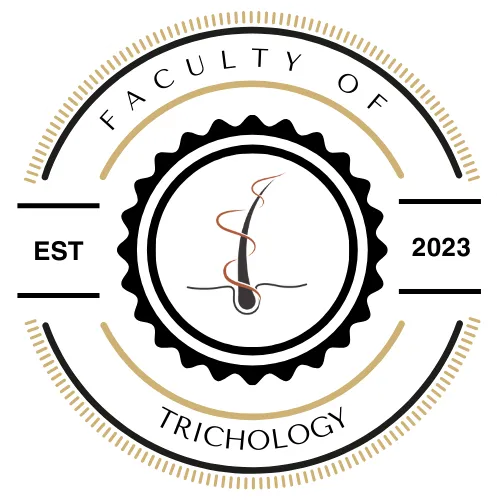
We’re more than hair. We’re a community, an education platform and a movement.
Our mission is to raise the standard — reigniting the heart of this industry with integrity, purpose, and connection. We’re also committed to bridging the gap between cosmetology, dermatology, and general practice, creating a more collaborative and informed approach to hair and scalp health.
ABOUT
The Hair Wire is a trusted resource created by trichologists, for anyone seeking clarity around hair and scalp health. With clinically backed information, we simplify complex hair loss conditions and offer professional insight, education, and solutions—one strand at a time.
DISCLAIMER
The content on The Hair Wire is intended for educational and informational purposes only. It is not a substitute for medical advice, diagnosis, or treatment. While our material is guided by professional experience and clinical trichology, we encourage individuals to consult with their own healthcare or wellness providers when making personal health decisions. The Hair Wire offers professional insights, not medical directives.
PATRON ACCESS
PRO' ACCESS
© Copyright 2025. The Hair Wire / Facutly of Trichology. All rights reserved.

